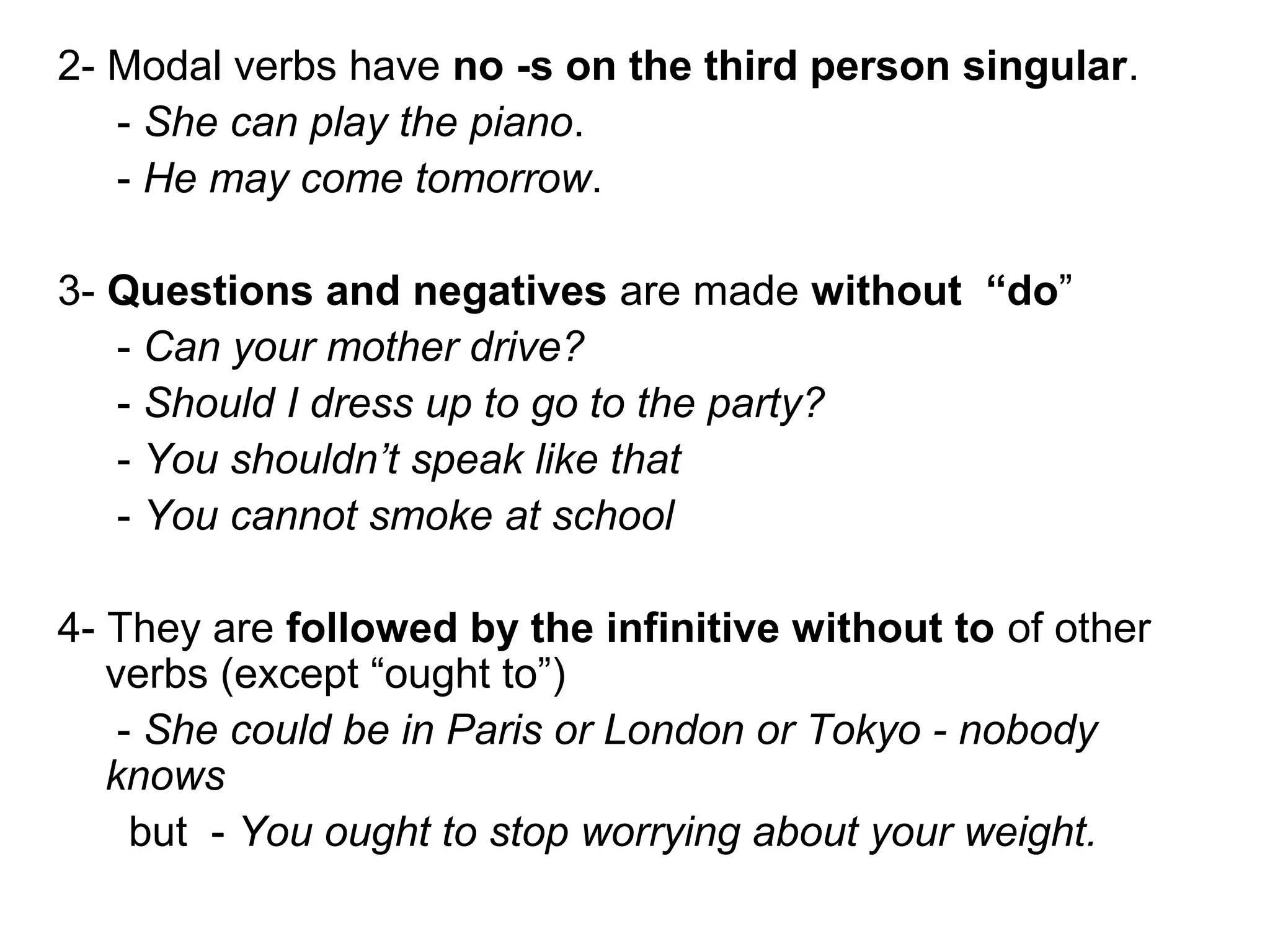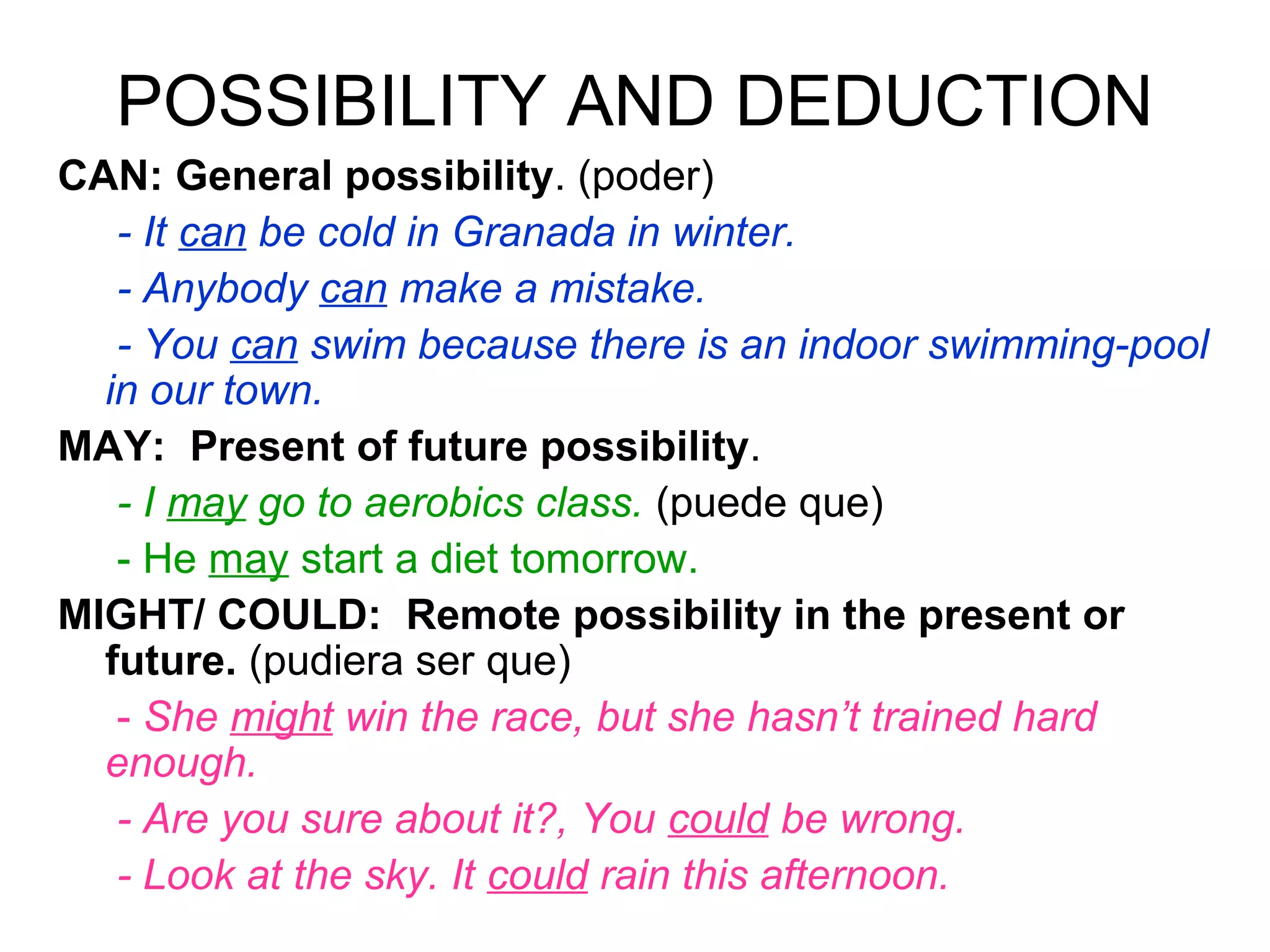This document discusses modal verbs and their uses in English. It covers:
1. General characteristics of modal verbs like having no infinitives or past participles.
2. Uses of modal verbs to express ability, possibility, deduction, obligation, advice and necessity. Common modal verbs and their meanings are defined.
3. Examples are provided to illustrate the uses and differences between modal verbs like can, could, may, must, should and have to.











